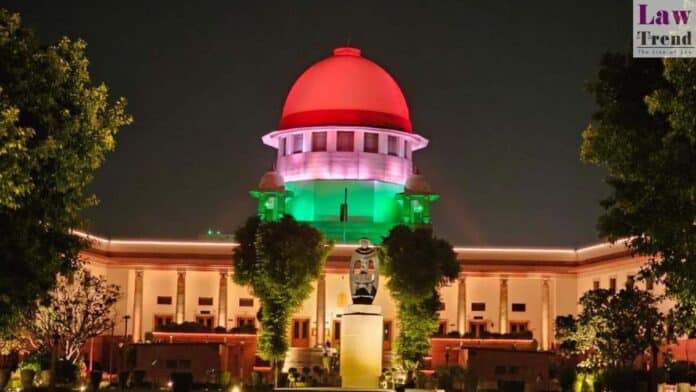A seven-judge bench of the Supreme Court on Wednesday said it will deal with the issue of whether immunity granted to lawmakers is available if there was criminality attached to their acts.
The bench headed by Chief Justice D Y Chandrachud commenced hearing to reconsider the apex court’s 1998 verdict granting MPs and MLAs immunity from prosecution for taking bribes to make a speech or vote in Parliament and state legislatures.
“We have to deal with the immunity as well and decide a narrow issue — can the immunity (to the lawmakers) be attached when there is element of criminality,” a constitution bench headed by Chief Justice D Y Chandrachud said.
Solicitor General Tushar Mehta, at the outset, said that possibly the controversy can be narrowed down in view of the fact that the offence of bribery is complete when a bribe is given and accepted by the lawmaker.
Now whether the lawmaker performs the criminal act is irrelevant for the question of criminality and it is a question under the Prevention of Corruption Act, rather under Article 105 which deals with the immunity available to the lawmakers, the law officer said.
The bench, referring to the 1998 judgement, said it was held that irrespective of the criminality, immunity is available to the lawmakers.
“We will ultimately have to deal with the issue of immunity,” said the bench which also comprised justices A S Bopanna, M M Sundresh, P S Narasimha, J B Pardiwala, Sanjay Kumar and Manoj Misra.
Nearly 25 years after the JMM bribery scandal rocked the country, the apex court had on September 20 agreed to reconsider its 1998 judgment, saying it was an important issue having a significant bearing on “morality of polity”.
A five-judge bench of the apex court had decided to refer the issue to a larger seven-judge bench.
The top court had in its 1998 five-judge constitution bench verdict delivered in the PV Narasimha Rao versus CBI case held that parliamentarians have immunity under the Constitution against criminal prosecution for any speech made and vote cast inside the House as per Article 105(2) and Article 194(2) of the Constitution.
Article 105(2) of the Constitution stipulates that no member of Parliament shall be liable to any proceedings in court in respect of anything said or any vote cast in Parliament or any committee thereof. A similar provision exists for MLAs under Article 194(2).
In 2019, a bench headed by then chief justice Ranjan Gogoi, which was hearing an appeal filed by Sita Soren, JMM MLA from Jama and daughter-in-law of party chief Shibu Soren, who was an accused in the JMM bribery scandal, had referred to a five-judge bench the crucial question, noting it had “wide ramification” and was of “substantial public importance”.
Sita Soren was accused of taking bribes to vote for a particular candidate in the Rajya Sabha election in 2012. She had contended that the constitutional provision granting lawmakers immunity from prosecution, which saw her father-in-law being let off the hook in the JMM bribery scandal, be applied to her.
Also Read
The three-judge bench had then said it will revisit its verdict in the sensational JMM bribery case involving Shibu Soren, a former Jharkhand chief minister and ex-union minister, and four other party MPs who had allegedly accepted bribes to vote against the no-confidence motion challenging the survival of the P V Narasimha Rao government in 1993.
The Narasimha Rao government, which was in a minority, survived the no-confidence vote with their support.
The CBI registered a case against Soren and four other JMM Lok Sabha MPs but the Supreme Court quashed it citing the immunity from prosecution they enjoyed under Article 105(2) of the Constitution.
Sita Soren had appealed against the Jharkhand High Court order of February 17, 2014 refusing to quash a criminal case lodged against. The CBI had accused her of accepting bribes from one candidate and voting for another.




